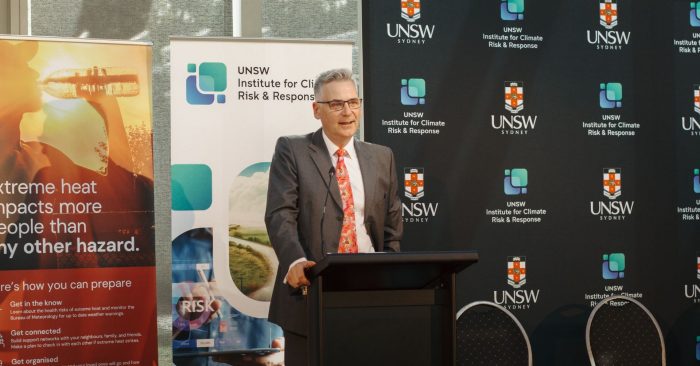As Nick Stern said in his Oxonia lecture prior to the completion of the seminal Stern Review into the Economics of Climate Change we confront: “a complex, inter-temporal, international, collective action problem, under uncertainty. ”
That is a hard problem. It is beyond any single discipline. Now is not the time for me to list all the elements of how we need to think about and address it, but after nearly 30 years of working on the climate problem there are two things which I believe are true.
Firstly, having the perfect political environment and policy settings for a few years followed by their rejection, will not work.
We are – at least in this over-governed, often muddled, yet vibrant democracy – never going to achieve policy ‘certainty’.
I don’t see it in health, economic, planning, security, environment or education policy so why seek it for climate response?
What we can achieve is some measure of stability and continuity. And that can be promoted through legislation and institution building.
These were the arguments we made in my time working at Downing Street. They led to the UK 2008 Climate Change Act and the establishment of the Committee on Climate Change (CCC). Policy certainty? No. But climate response is always at the policy table and the CCC has responsibility for both establishing the UK’s climate budgets and advising the government on how to get there.
Nigel Farage might not like it. But to change it, reform must get the votes of the electorate, the seats and then the votes in Parliament.
When I worked at Downing Street in 2004 around 34% of UK electricity came from the combustion of coal. Around 3. 6% from renewables. By last year 51% of UK electricity came from renewables, less than 1% from coal. Of course, there are many reasons for this, but one of them is the stability and continuity brought about by the 2008 legislation and the work of the CCC.
So, do we just do what the ‘mother country’ has done? Do we just follow its lead? We do not.
Already, the Net Zero Commission has done outstanding work looking at all the equivalent bodies in multiple jurisdictions to better understand what we might learn and apply ourselves.
Yet, there’s a second fundamental dimension we cannot ignore in our response. Climate policy remains immature.
To put it in context, the Romans and the Persians had pretty effective transport and infrastructure policies a couple of thousand years ago. And at Baiame’s Ngunnhu, at Brewarrina, the complex network of stone channels and ponds designed to catch fish as the river levels changed, is a sophisticated example of early engineering and sustainable food systems, and remains some of the oldest human-made structures in the world.
In contrast, our environment policy has a history going back to 1872 and the establishment of the Yellowstone National Park. The United Nations Framework Convention on Climate Change only entered into force in 1994.
The history of how we meaningfully respond to this problem spans a mere 31 years.
And if delinking energy growth from economic and emissions growth were anything other than an extremely difficult task, it would have been done by now.
In addressing the climate problem we need to engage the best minds and ensure that all our policies are grounded in rigorous evidence.
That is why I am so impressed by the UNSW Institute for Climate Risk and Response, so pleased to be here today and so enthused to be working with my fellow Net Zero Commissioners and our fine team.
We need stability and continuity: something which the Net Zero Commission and the support for the Climate Change (Net Zero Future) Act 2023 across the NSW political spectrum, helps achieve.
And we need to think creatively and rigorously across disciplines through engaging with the people who have the social scientific and wider expertise to understand what interventions are likely to be most effective and attractive.
That includes all the elements in today’s rich agenda.
We need to understand if Australia can demonstrate how a resource rich economy can decarbonise and demonstrate the feasibility and wisdom of doing so. How? Matt Kean, Richie Merzian, ‘Alopi Latukefu, Wesley Morgan and Elizabeth Thurbon have given this more than a passing thought.
